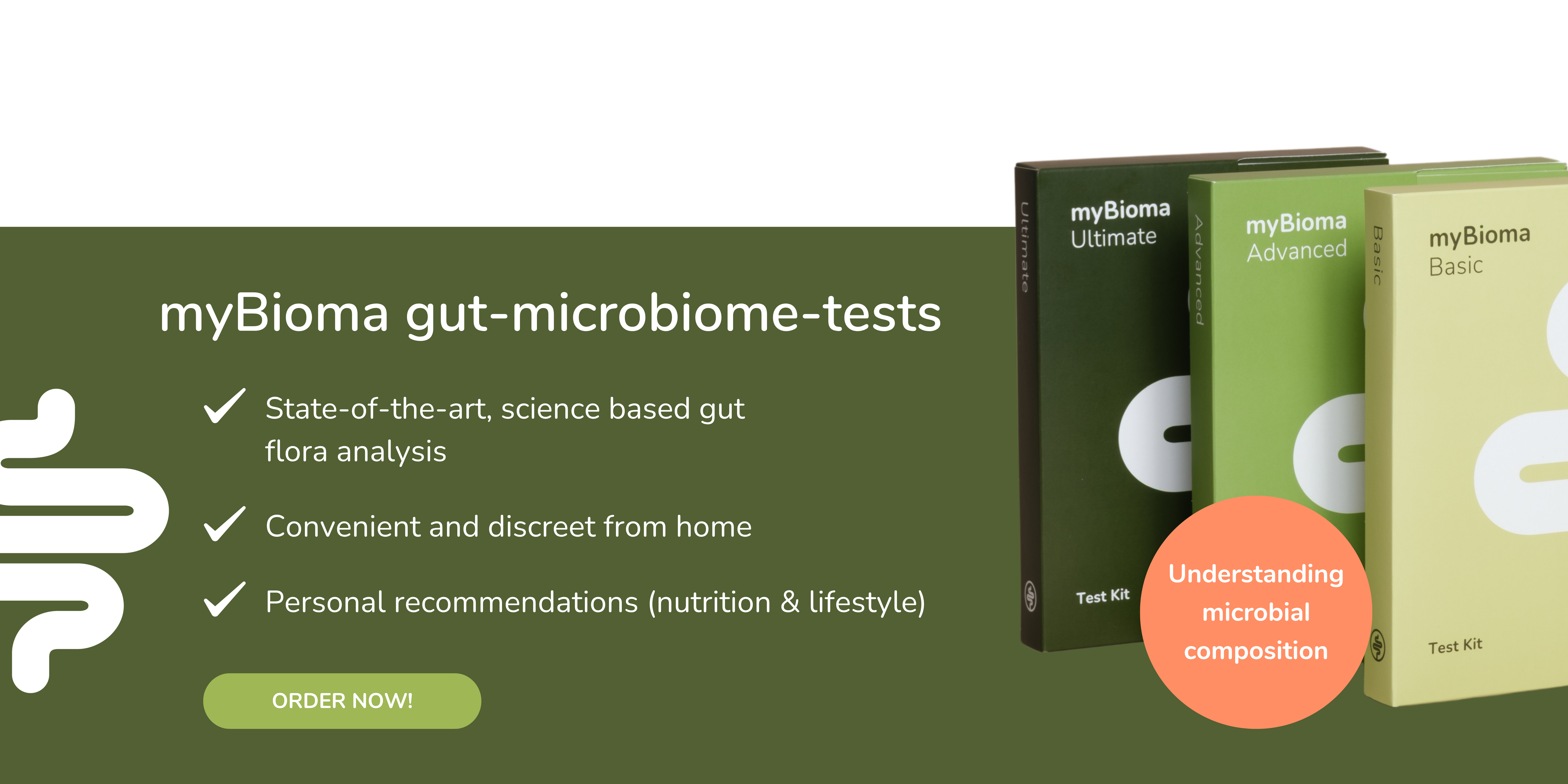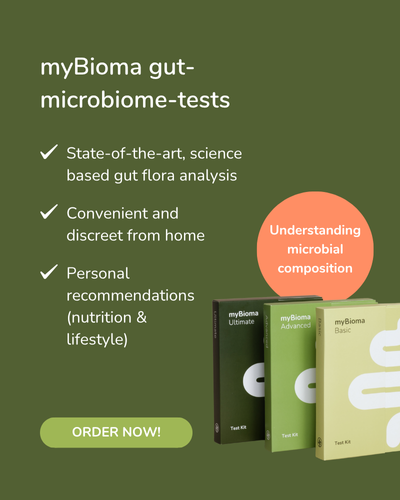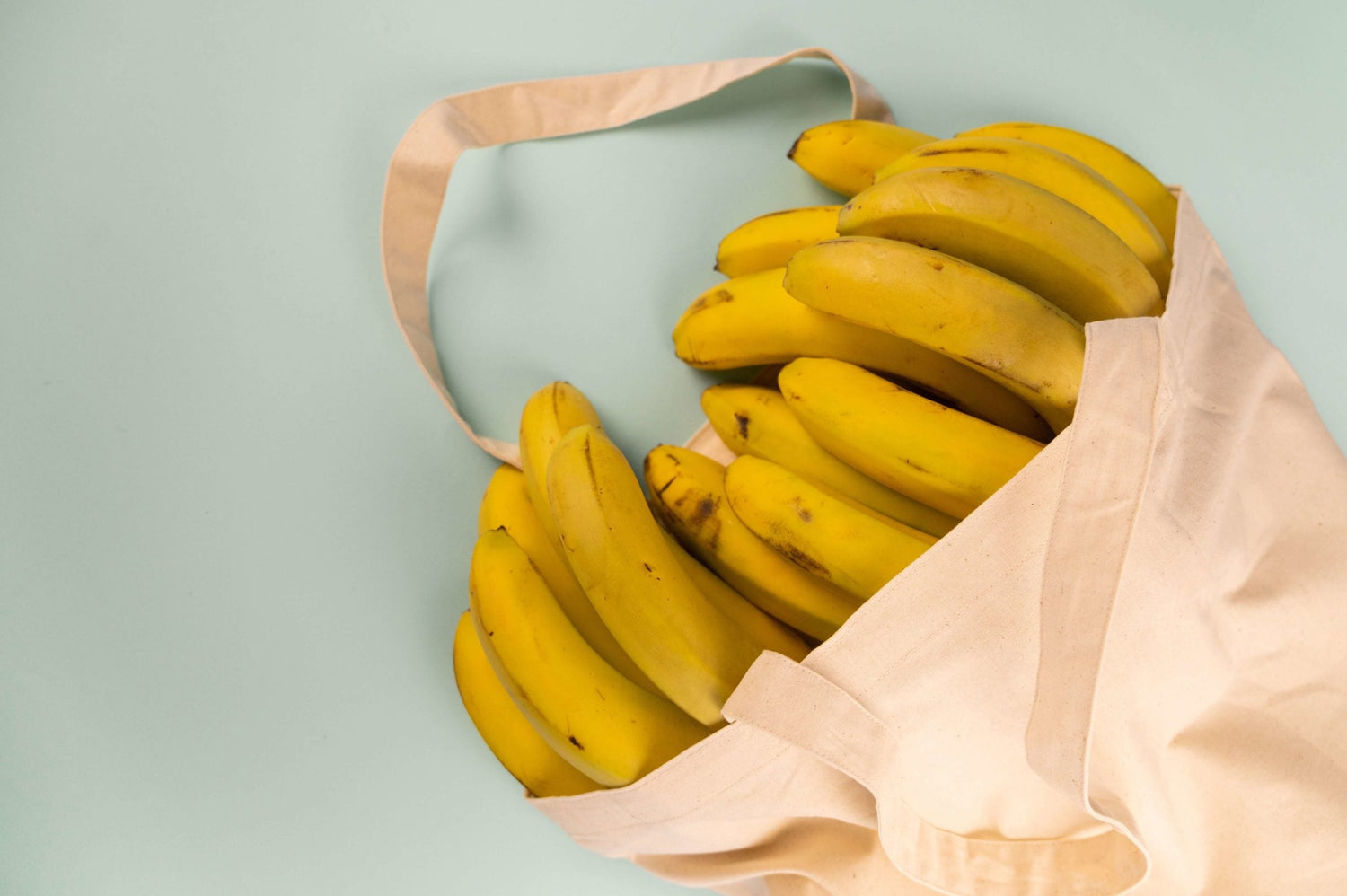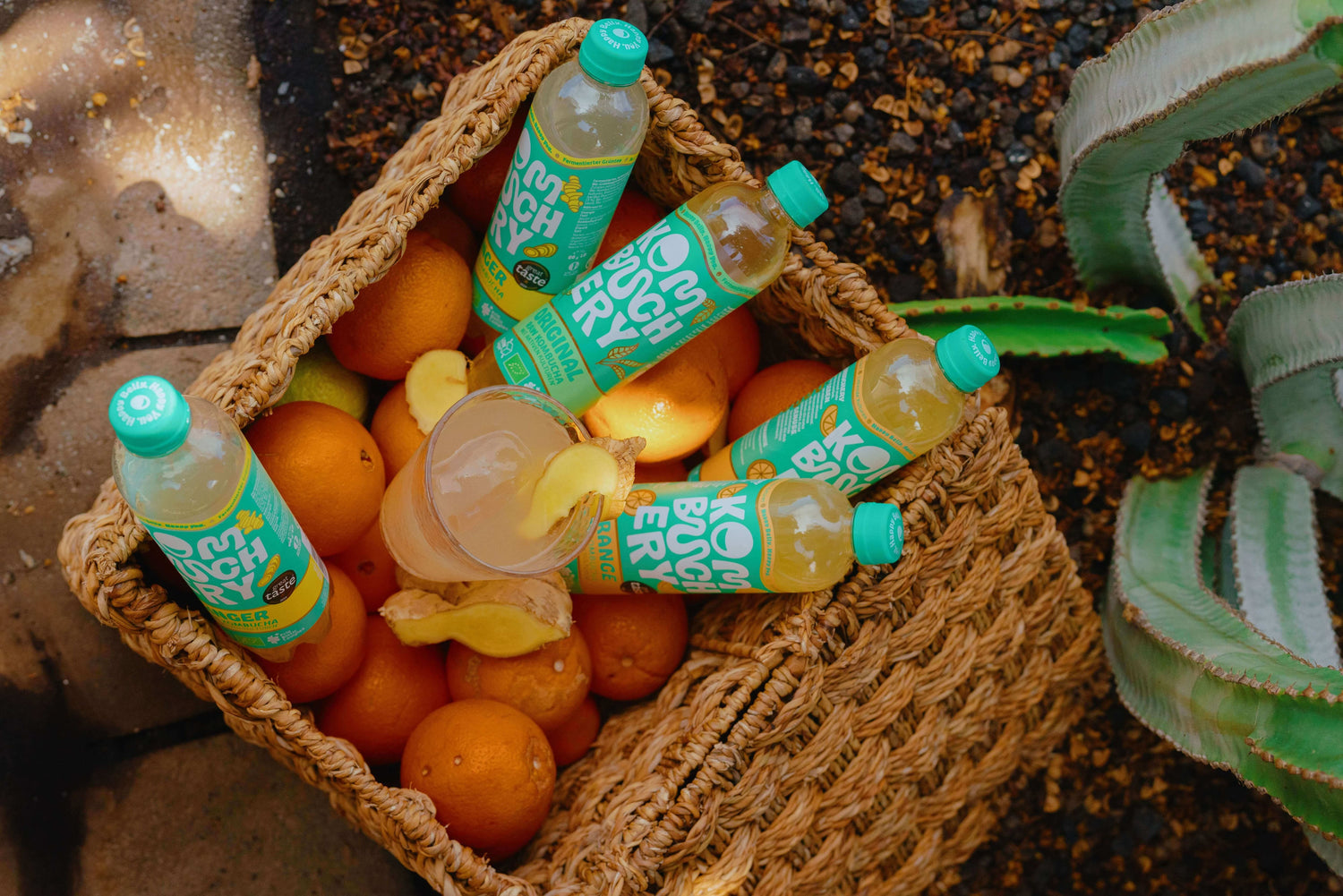Ginger is not only popular in the kitchen, where its spicy flavour refines a wide variety of dishes. The spicy tuber is also becoming increasingly popular in medicine . Ginger is often used to treat colds in particular - due to its stimulating effect on the immune system .

Ginger is rich in essential oils and pungent substances and also provides vitamins and minerals such as vitamin C, magnesium, potassium, calcium and iron.
Is ginger healthy for the gut and our intestinal flora?
Ginger can stimulate the growth of healthy gut bacteria and have a positive effect on bowel movements . The essential oils and pungent substances it contains can inhibit unfavourable intestinal bacteria and viruses and has an anti-inflammatory and antioxidant effect. Ginger can also help with digestive complaints such as diarrhoea, constipation, cramps in the gastrointestinal tract, a feeling of fullness or nausea . However, caution should be exercised if you have a hypersensitive stomach, as ginger can have the opposite effect in such cases and promote diarrhoea or cramps. (1)
How ginger affects our intestinal flora - scientifically explained
Microbiologists at the University of Louisville in Kentucky have now investigated the more precise mechanisms that should explain how ginger affects health and the microbiome .
In previous studies, the researchers had already discovered that exosome-like nanoparticles derived from plants such as broccoli and ginger can help prevent alcohol-induced liver damage and artificially induced colitis (= intestinal inflammation) in mouse models.

A sketch of the described mechanism of how micro-RNAs influence our gut bacteria. (2)
Exocytosis enables by-products to be excreted
Exocytosis ("exo" = outside) refers to the process of releasing substances from the intracellular space (= inside the cell) into the extracellular space (= outside the cell). For this purpose, vesicles filled with waste substances, the so-called exosomes , are pinched off. The exosome prevents a direct encounter between waste material and cytoplasm, as by-products that are no longer required can still interact with cell organelles in a harmful way. As soon as the exosome meets the cell membrane, it fuses with it and empties the contents into the intercellular space.
MicroRNAs in ginger stimulate the growth of beneficial gut bacteria
When the scientists recently sequenced ginger-derived exosome-like nanoparticles (= elucidation of the sequence of certain building blocks), they found that they contained many microRNAs . microRNAs are a specific form of single-stranded RNA in the cell that are involved in the formation of a gene product encoded by a gene, primarily proteins.
This finding led the researchers to wonder whether edible plant RNA could be taken up by gut bacteria and stimulate expression in their genes. Expression is the way in which genetic information is expressed and manifests itself. It has already been shown that human fecal micro-RNAs do this in mice.
To get to the bottom of all this, the mice were fed with purified
exosome-like nanoparticles of ginger. The composition of the gut microbiome was then analysed. Of particular interest was a significant increase in Lactobacillaceae - a family of beneficial bacteria often used as probiotics - in treated mice compared to mice fed a neutral medium. Test tube cultures also showed that the nanoparticles promoted the growth of Lactobacillus rhamnosus and several other Lactobacillus species.

1: Using colitis induced in a mouse model, the researchers investigated the effects of ginger-derived, exosome-like nanoparticles on the intestinal flora. The team found that these are preferentially taken up by Lactobacillus intestinal bacteria and increase their frequency. 2: The particles contain microRNAs that stimulate a number of bacterial genes. 3: In particular, they activate a signaling pathway that leads to the expression of interleukin-22 in colonic mucus. Interleukins are endogenous messengers of immune system cells.4: This is thought to promote tissue repair and antimicrobial immunity and ultimately improve colitis symptoms in mice(2).
This is how effective ginger is against ulcers and damage to the intestinal mucosa
To find out whether this mechanism could have a positive effect on health, colitis, which leads to ulcers and lesions in the intestinal mucosa, was induced in mice with certain chemicals. After consuming the ginger nanoparticles, the mice showed an improvement in their colitis symptoms compared to the control group, which was given mixed particles, and further experiments indicated that the ginger nanoparticles activate a number of bacterial genes whose signaling pathways promote tissue repair on the intestinal mucosa.
Plant nanoparticles influence health and the composition of the intestinal flora
According to the researchers, the results are proof that plant nanoparticles can influence the composition and health of our microbiome, which in turn harbors "a new approach for future studies." In the scientific community, the results illustrated "a remarkable mechanism of these interactions between the diet, the microbes and the host". Many studies establish correlations between dietary interventions and changes in the microbiome, but very few investigate the molecular mechanisms involved. Therefore, on the advice of the experts, there should be many more studies like this in general.

It tastes best when you cook it yourself!
Recipe for a warming carrot-ginger soup
Especially in the cold season , it is important to take good care of yourself, your body and your microbiome in order to ward off colds and keep your immune system and the inhabitants of your gut resilient. So how about a delicious carrot and ginger soup that also contains lots of fiber ?
Ingredients
For 4 portions you need:
- 1 tbsp coconut oil, or another oil
- 1 onion, chopped
- 2 garlic cloves, chopped
- 30 g ginger, chopped
- 5 (500g) large carrots, roughly chopped
- 500 ml vegetable soup
- 1 tbsp lime juice
- 1 tsp salt
- Pepper to season
Preperation
Heat the oil in a large pan . Sauté the onion , garlic cloves and ginger for 5 minutes. Add the carrots and sauté everything for 3 minutes. Then pour in the vegetable soup and simmer gently for 15 minutes with the lid on. Puree everything into a soup using a blender or hand blender. Season the soup with lime juice , salt and pepper . If you like, you can refine the soup with a little (cashew) cream/coconut milk . If you want it a little less spicy, the amount of ginger is of course variable.

Our delicious carrot and ginger soup: If you prefer, you can also roast some pumpkin with the carrots.
We hope you enjoy cooking this soup - your microbiome will be delighted with this soothing soup!
Want to know how your gut inhabitants are doing and test your gut flora? With our gut microbiome test, you can have your microbiome analysed from the comfort of your own home!
References
- https://www.zentrum-der-gesundheit.de/ernaehrung/lebensmittel/ingwer-uebersicht/ingwer
- Y. Teng et al., “Plant-derived exosomal microRNAs shape the gut microbiota,” Cell Host Microbe, 24:637–52, 2018.
- https://www.the-scientist.com/the-literature/molecules-found-in-ginger-remodel-the-microbiome-65369







